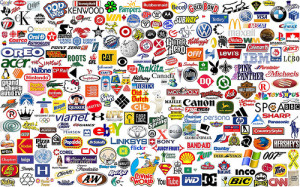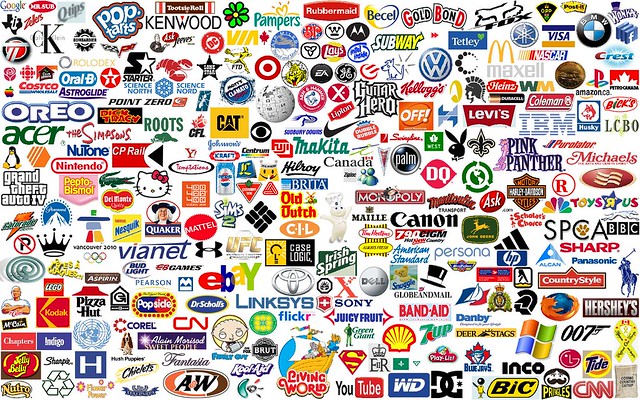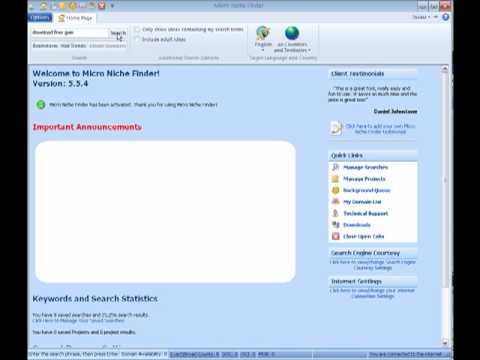Listen in iTunes

In today’s episode, we discuss 7 Essential Questions For Niche Product Creation & 14 Business Lessons.
Transcript may have some issues below… but you can get 99% of the info from it, and of course, I would prefer you download and listen to the podcast.
Adam Roseland Recording – MMWNS Episode # 11
Hey everybody! Welcome to another episode of the make money with niche sites podcast. I apologize for the long delay. Just a lot going on my personal life that, you know, I’m sure you don’t really care about, but at the end of the day it’s just keeping me away from doing what I need to be doing. My dad’s losing his eyesight which I think I mentioned in a previous podcast. So I’ve been taking my family out to see him.
Recently…I live in Philadelphia…recently, we got slammed with some rain storms and my basement went under water and when I say within 5 minutes it went from completely dry to completely soaked in which I was just unbelievably watching the water spread in which (little Louise) had ______ turned on a faucet in my basement and I just sat there helplessly watching. So if anybody here in Philadelphia, they know an affordable and effective water proofer, file me…shoot me an email.
But what I want to do is get to you guys with some important things and I know that we generally focus on niche sites and I know a lot of people, (a lot) of ties with that sense. But I think what happens is a lot of people get focused and zero in on specifically using Adsense to monetize rather than generating products or, you know, ebooks or anything like that and creating niches around them.
So today, what I wanna talk to you about is creating new products and/or services and how to really bring them to market. So the first thing I wanna focus on is when promoting a new product, what you need to do is identify unfulfilled customer needs, whether it be a faster service, better prices, superior quality, convenience, a personal service, a better guaranty, something like that.
You really need to start doing some research and you can do it internally with what you’re looking for as far as customers, or ask people, ask your family, ask you wife, ask your girlfriend, your boyfriend, your husband, your kids, you know. What are people looking for, you know? If they’re looking specifically at, you know, furniture… how do you improve furniture? How do you make a chair better, or say, is it having more swivel features? Is it having…you know, rollers or ______always said these are all (Belmont) chairs?
But the point is, you have to figure out a way to look at a product or service and find a way to improve about it. You don’t always have to come out with a brand new never before thought of idea. You just need to come to the table with a way of identifying an unfulfilled need and market towards it. So there are 7 essential questions, in my opinion, that you need to determine to see if a product is worthwhile to produce or bring to market.
The first one is obvious. It’s: Do I have a good idea? Now, the best way that I tried to figure out whether or not I have a good idea is, I actually come up with an idea, whether mowing the lawn or listening to a podcast or taking a shower. When I have an idea, what I want to do is I want to write it down because everything, first of all, loses its effectiveness if I forget it. But most importantly, when I put it on paper, I really have to start to figure out (on and on) exactly what I want that idea to be. And the reason I put it on paper is to make sure that again I don’t forget. I forget things, I come out with ideas, tender ideas now and I forget most of them. So, well I said I put it on paper it doesn’t necessarily (have) to be a writing it down kind of work (absolutely). It can be putting it down into a Word document or what I really like to do is put it on my calendar as an event and what I like to do is set that event 3 to 4 days earlier. So the hot idea is like “Wow, it’s great this thing is going to revolutionize the Internet. It’s the new phase for blah blah blah. Put it down on my calendar and 3 to 4 days later when I look at it, do I think it’s the same good idea? Has it lost any of the shine that it had originally or am I still really gung-ho about it? That way I’m not jumping into something that isn’t really an effective idea. It’s a… I’m not wasting money investing in research or time or anything like that. I’m just saying, alright well, in 3 days I’m going to review this topic and see if I like that idea still.
The second thing is, does it feel like it will work? Now having a good idea obviously makes sense, you know. When you say, hey you know, most good ideas you feel like…like it could all work, but really what I want you to do is, ask people if it feels like it would work. So if I’m coming up with some revolutionary idea or even a better way to, you know…a better faster mouse trap as they like to say, I want to ask my friends, my family, “Hey, what do you think?” and don’t be afraid, honestly, don’t be afraid of people stealing your ideas. So many entrepreneurs that I know or one of the entrepreneurs that I know say, “Well, you know, I have ideas but I can’t really talk to you about them because I’m worried that, you know, if the idea gets out, somebody’s going to beat me to market.”
I got a news for you. Most people are very lazy. Nobody, nobody is interested in your idea. In lots of _____ it’s really just unbelievable and, you know, chances are pretty good that your product idea, not to be rude, isn’t going to be the new revolutionary social media option like Facebook. You’re not going to just all of a sudden create a YouTube. You’re gonna come up with an idea that’s pretty good and can make a lot of money, but it’s not a billion dollar idea, but it’s a business idea. And so don’t be afraid to share it with other people and get their feedback. Ask them, hey this…you know, “Here’s my idea. Does it sound like it’s something you’d be ______ today? Does it feel like it would work for you? If I made this product, would you buy it?”. And that’s the big thing. Does it sell like a good idea and would you buy it, a really kind of 2 different concepts and if you got that person to say “Yeah, I’d buy it, put a price on it that’ll be great.” “Well hey, you know what, I’m gonna be selling this for $99. Can I count on you for my first sale?”
You got to really figure out whether it’s a good idea that if somebody is like “Well, you know, hey, you know, it sounds like a good idea, but I got bills to pay…I got to invest in this or hey, I just had a redo…put a new ____ put in my face, but you really feel like…feel whether or not they think it’s a good idea but that they feel it’s going to work. So, I want you to figure out whether or not you think it’s gonna work.
The third thing is, are your sales targets realistic? Now, we’ve gone from a simple idea that you’ve hopefully written down on your calendar. You’ve put it down for a couple of days. You’ve slept on it. You keep coming back to it and you say, hey this is a great idea. Now you’ve asked some people like, hey, you know what, I like the idea best and I want to see your feedback. Do you think it can work? Is it a bad idea, you know. Give me some ideas on how to improve it and, more importantly, ( willing) to buy it.
Now you have to figure out what your sales targets are and by that, how many can you sell? How many people can you service during the course of the year or per month, per day and figure out whether those are realistic. One of my favorite things that I read about, you know, so much ______ that say, hey you know what? If I sell just 1% of these of my products or service to all the people who need it in the world or all the people in China or all women or all people in the City of Philadelphia, then I’m gonna make X amount of sales. Well guess what, 1% is a really big number for a brand new product. Now I know that 1% is small and people look at conversion rates for websites and if I get 1% of clicks on my Adsense, that will be great. But when you’re selling products, if you’re talking about 1% of all possible sales targets. Meaning like I’m gonna make a new, you know…a new type of jewelry for women. And if just 1% of women in Philadelphia buy it, guess what, 1% of women are gonna be interested in your jewelry. Well let’s just be honest. There’s gonna be people that have different tastes. They’re gonna have different economic situations, so you can’t use numbers like that. You really have to zero in on small, small numbers.
That brings me into the next set of subject which is # 4 of the 7 (scheduled) questions. # 4 is, can I afford to test the idea? Now I know building a niche site is very cheap and it’s very affordable. It’s just buying a domain, getting some hosting setup, investing some time and effort into putting out some articles. But when you’re talking about how to market a product or service, sometimes, it’s gonna be a little bit more than that. So can you afford to test out the idea? And paying the testing is the most important thing you can do before really starting to invest into a new product.
So before you invest a couple of thousand dollars in production of this, you know, this great new type of sneaker, I want you to really think. Can you afford to make, you know, a thousand of those products? Because if you do go to market and you find out that there are people that are… just aren’t buying and you still have a need to sell, then your product, your service is gonna just fail. And you also need to able to say, hey, if I make a thousand of these and nobody buys them, am I gonna be able to pay my mortgage? Am I gonna be able to send my kids to school? Am I gonna be able to eat? Because if you can’t afford to test the idea, then it’s really not that good an idea. And bottom line – if it’s a good enough idea, you can always get investors. So when you say, hey, you know, are you willing to buy that $99 product that’ll make you my first customer? If that ______ option, would you be (more able) to invest on that side yet? So make sure that you can get financing to invest and test the idea.
The next thing, # 5 is, do I know the basic tests that need to be done? So let’s just talk about coming to market with the new product. You know, there’s a lot of things other than just getting a website up to get people to buy your product. If you’re gonna be looking at manufacturing shoes or manufacturing anything or if it’s a service that you provide, you know, if you’re getting into the lawn pavement sector, you know, do you have the people and do you know the tasks that need to be done? So alright well, if I’m going to set up a lawn care company, do I have the ingredients that I need to, you know, to put into the lawn to get greener grass? Do I have a…you know…do I have the machinery that I need? Do I have the know-how of what I’m supposed to be doing and do I have the means to get to more than one person per day? That’s a…you know… that’s obviously…leading to the next thing which is, do I have the people who can do these tests? Do I have enough people or staff to do these tests? Do I have to do them myself or do I need 50 people or staff? Do I need just another secondary person to help out on weekend? You need to know what the basic tests are for the project and you need to know, do I have the people who can do the tests. That’s actually numbers 5 and 6.
The final and most important thing I think of when starting a new product or service, and this is # 7…it’s the final one, is, do I have a Plan B, an Exit Plan, in case my good idea turns out to be a bad one? So, think about that. My idea seems like a good idea in my head. It seems like a good idea to a batch of my friends. I made realistic sales targets. I can afford to test the idea so I have some money in the bank and I’m raring to go and test it. I know what the basic tests are that need to be done. I know how many people I need to do these tests. But now that I’m going to market it and it turns out, you know what, it wasn’t that great idea or was a good idea but just didn’t market well and it’s failing, do I have a Plan B? Can I reassess how to do what I’m doing and find an alternative? Can I reapply some of the inventory to another product or another service? Do I have an Exit Plan, you know? Am I going to try and sell this now that I invested all these money into it? Can I sell it for half of it to somebody that might be interested? Just finding a way to having a Plan B is the first thing that you need to do before you actually start working on Plan A and ____. No one ____ Exit Plan. Any website I built, I always have an Exit Plan. Any new service, new company that I’m building, I always have an exit plan and you should too.
So… the 7 essential questions to determine if a product is worthwhile to produce or to take to market is, do I have a good idea, do I feel like it will work, are my sales targets realistic, can I afford to test the idea, do I know the basic tests that need to be done, do I have the people who can do the tests, and in my opinion most importantly, do I have a Plan B, an Exit Plan, in case my good idea turns out to be a bad one?
So now that we’ve covered some essential questions that you need to ask yourself, I want to talk about some lessons. I’ve got actually 14 lessons that I think are pretty important. And these are just culminated from reading books, from actually starting businesses, from running businesses profitably and running some businesses into the ground. I want you to just take these into consideration. So there’s 14 lessons.
The first lesson is: Your customers don’t care about you or your business. They care about themselves. My business partner and I built websites for, you know, for core pieces of our business. We do a live digital marketing. But we do a lot of websites and one of the things that he and I actually battle a lot about (Jay Smith) ______ thing, you know, we talked about this a little while last night, is, customers still care about who we are. They don’t care about my business. They don’t care about who I work with or what I’m doing. They care about themselves. They wanna be able to tell their friends that they’ve got a beautiful new website. They wanna tell (to) show their friends that they’ve a beautiful new website. They wanna know that they got a deal on their website. They wanna know that they have the best people in the world and that…includes, you know, people knowing about who you are and your business but they won’t be able to tell people, hey, I used the best company in the world about…you know, to build my website. So just understand that they’re not concerned about you. They’re concerned about themselves.
Lesson 2: A small portion of your customer base is always gonna be giving you the lion’s share of your profits. Most of you may know this is the 80-20 rule, or Pareto Principle. Basically what it means is that 20% of your clients will generally give you 80% of your revenue. This applies to just about anything in life, in my opinion. But a small portion of your customer base is gonna give you the lion’s share of your profits. So, Tim Ferriss talks about this with a 4-hour work week where he was firing customers because they were taking up too much time and not generating enough revenue for him. Something you consider when you start to streamline your business is, how much of your money is coming from how many of your clients and are you giving them the right amount of customer service or giving them the value that they deserve?
Lesson # 3: Understand why it is that your customers buy from you. Is it because you have the best customer service, is it because you have the best product, is it because you have the best pricing, is it because of your location? Understand why customers are buying from you. So if you’re writing ebooks, is it because of the quality of the content, is it because it’s short, is it because it’s long, is it because of the pricing? Things like that are really critical in understanding why your customers are buying from you and, more importantly, how to sell more.
# 4 is, always, always, always try to track as many sales transactions as you can, but understand that every single one of those begins with the process of generating a lead. So it’s great to know that it’s…you made a sale. But where did that lead come from? Did it come from your friend, your neighbor, your website, from an ad you placed in the newspaper, from media placement that you have on a specific website? Is it from a link that you generated on a website? Is it from a television commercial that you created? Understand that you have to sit and track your sales, but most importantly, understand where they’re coming from. Leads are more important than sales because leads turn into sales.
# 5 which I’m not gonna go too deep into is, learn multichannel marketing. If you don’t know what it is, I want you to google it. Get a feel for what it is. It’s really critical for business.
Lesson # 6: Follow the golden rule of marketing, which is treat customers the way you want to be treated. Bottom line – if you’re not taking care of your customers the way you expect to be treated when you go into a store or use a service, then you’re doing yourself a disservice because you’re not taking care of customers the way you want to be and that’s the critical piece to making sure that customers become repeat customers.
Lesson #7: Remember that there’s pretty much 4 key elements of great marketing. The first one is having a big idea. The second one is a big benefit. The third is a big promise and the fourth is proof. So with any more kidding effort that you put out, whether it’s in your website copy or if it’s in a, you know… an advertisement that you placed in a newspaper or television or radio or it’s a banner advertisement or a billboard, it’s got to have a big idea, a big benefit to the client, a big promise of what you’re gonna do for that client and proof that it works.
Lesson # 8: Understand that customer complaints and objections are the key to better selling. They are a blessing. If somebody is taking the time and effort and energy to complain about your service or product, they care enough that you should listen. And bottom line – when somebody objects to what you’re trying to sell them, find out why. When somebody says No, find out why. This will help you to become a better seller. It gives you an opportunity to make up for any (botched) sales and if somebody already bought it and they’re complaining, this gives you an opportunity to make the customer happy, but most importantly, that same objection or same complaint is gonna come up again and again and again, and if you don’t take energy and effort to fulfill whatever that complaint was, that problem, if you don’t, correct it, you’re not gonna become a better seller and more importantly, you’re not gonna sell as many products and, therefore, you’ll have less profit.
Lesson # 9: Maintain a no-dead-end policy on products, meaning, once you sell products, always, always, always try to have another product or service that you can offer them. So figure out what else can you sell somebody. If you’re selling an ebook, find a way to get that email address obviously and then sell another product to recommend another product for your affiliate marketing in a product later on. Never ever just do a wantonly done sales pitch. Always, always, always try and find a secondary and a third way to sell to people down the road.
Lesson # 10: Every single product that you create or every service that you have needs its own unique selling proposition and its own branding. Now that doesn’t mean that if you offer 3 different products that they can’t be similar in brand, look and feel, but they need to have their own brand awareness. Meaning that Coke Zero and Coke have 2 different brands and 2 completely unique selling propositions. And you need to understand that’s the same thing with your products and services. Yeah, I know you’re not Coke, but if you’re gonna do lawn care and, you know, tree trimming, they are 2 different things and they need to be promoted differently and they need to have different branding and they really need to make sure that there’s something unique about each one of those.
Lesson #11: Try to understand the core buying motives of customers. Now, this goes back to some things that we talked about earlier about understanding why your customers buy from you but it’s really different. When I say the customer is buying from you because of price or because of your location or because of the service, there’s a motive behind that. The motive, meaning that if they buy because of low price, it means that they don’t have a lot of money. And maybe your core set of prospects is at a lower class and they don’t have a lot of money. And that’s why your low pricing is important. Or if people are coming to you because you’re geographically desirable, understand that their buying motive is that people will travel far for your service or product so that you need to make sure that you’re only fishing in that smaller fish pond than, you know, going out…in Philadelphia. I don’t need to waste my efforts selling in California if I know that my product or service is a geographically desirable thing where it’s got to be local. So understand that every product is gonna have to have a ____. Every customer is gonna have some kind of core buying motive behind them and you need to figure out what it is.
Lesson # 12: Practice reciprocity with customers. So the idea is, give more, get more. If you…you know, one thing that I’ve learned a long time ago is that if you give something away to somebody, they’re going to feel the need to actually give something back to you in the form of business or in the form of leads or referrals. So whenever I can, I give clients and prospects whatever I can. When I make a pitch to somebody in this _______ we talk(ed) about, if I’m pitching a website to them and they’re not sure if they want to use my company or if there’s no other (service), I tell them, hey, please use me as a resource. Even if you’d go with another company, feel free to reach out to me if you have any questions about digital marketing. If you have questions about the other company that you’re looking at. I want you to come to me so that I can give you something, so that you feel a lot (obligated) to give me something in return. But I’m not allowed to say it that way. But I want them to feel the need to give me something back because I gave them something first. It’s the simple law of reciprocity. If you guys read every persuasion book, it’s right out there in front of the (clear) laws of persuasion, law of reciprocity and if we give more, we get more.
#13: Be confident and enthusiastic when you sell. Now this again is more of an offline situation, but nobody ever buys products unless (if) they absolutely have to have it and there’s no other salesman to sell it to them. They never buy products from somebody that’s not confident or enthusiastic about what they’re selling. And I’m not saying that you have to be jumping off the walls and, you know, pretending that, you know, it’s the greatest product in the world. But you need to believe in what you’re doing. If you don’t believe in what you’re selling, you need to stop selling it. And if you’re not confident that your product or service is good, then you need to stop selling it because quite frankly, people can see that. They understand quickly that you’re not enthusiastic and that’s why you’re not making sales. So if you don’t believe in what you’re doing and you’re not enthusiastic about what you’re doing and you’re not confident that you have the right product for your customers, stop selling it today and go find something else to do. It will save you time and effort and you’ll find something down the road that you are enthusiastic in and you’ll make more sales.
The final lesson is, don’t push or bribe customers. I talked about giving more to get more but that doesn’t mean bribes or ______. Don’t push…don’t be pushy and don’t make bribes to get more customers. Trust me and…it’s one of those good…you know, good things come to those that do the right thing more, you know. If you wanna take good (karma) ______ people like to do good things. Whatever it is, I believe that if you take care of your customers and provide the right service and you’re doing it with a true and honest heart that you’re gonna get the business and if you start to be pushy or if you start to try and bribe customers, it just doesn’t work out.
So, lessons again 1-14:
Lesson #1 – Your customers don’t care about your business. They care about themselves.
Lesson #2 – A small portion of your customer base is giving you the lion’s share of your profits.
Lesson #3 – Understand why your customers are buying from you.
Lesson #4 – Almost every sales transaction begins with the process of generating leads.
Lesson #5 – Learn multichannel marketing.
Lesson #6 – Follow the golden rule in marketing. Treat customers the way you want to be treated.
Lesson #7 – Remembering the 4 key elements of great marketing – big idea, big benefit, big promise, big proof.
Lesson #8 – Understand that customer complaints and objections are the key to better selling.
Lesson #9 – Maintain a no-dead-end policy on products. What else can you sell them?
Lesson #10 – Every product needs its own unique selling proposition and own branding.
Lesson #11 – Try to understand the core buying motives of customers.
Lesson #12 – Practice reciprocity with customers. Give more to get more.
Lesson #13 – Be confident and enthusiastic when you sell, and
Lesson #14 – Don’t push or bribe customers.
Well, that’s gonna do it for today’s show. I really appreciate you taking the time and energy for joining me and listen to this podcast. As usual, I encourage you to visit my website, makemoneywithnichesites.com. Leave a comment. Tell me what you want to hear. If you have any questions or concerns, by all means, put them down there in the contact form so I can produce better shows for you.
I do have a couple of things coming up. I have another interview for you that I promised a while back. I’ve (just got to) the editing. That will be the next podcast I’d produce and I do have some listener questions that I want to go through. So I’m giving another chance to put out some emails to me for listener questions, things that you want to have discussed on the podcast.
And now that my kids are gonna be going back to school and I’ll have a…an empty house again, I’ll be able to get back to more posting and more podcasts on a regular basis. So thanks for your patience and thank you again for taking the time to share with me the…after allowing me to share with you some feedback and some thoughts on how to make more money with niche sites.
You guys have an excellent day.
Image: ‘my lifes logos‘

Found on flickrcc.net







